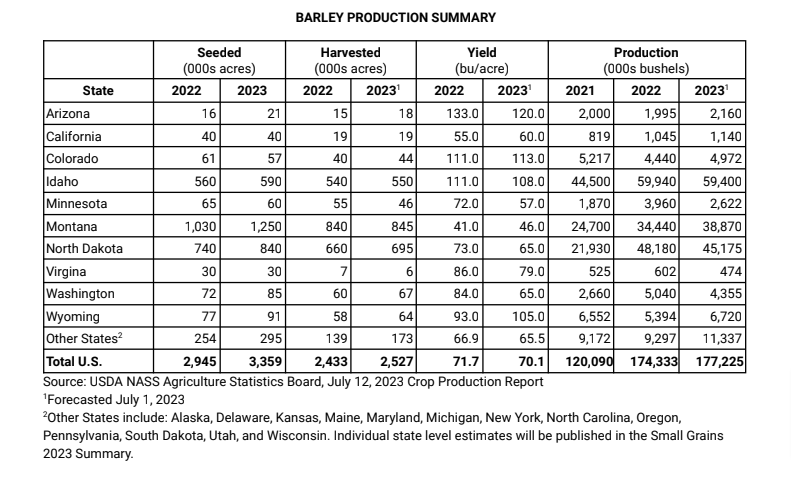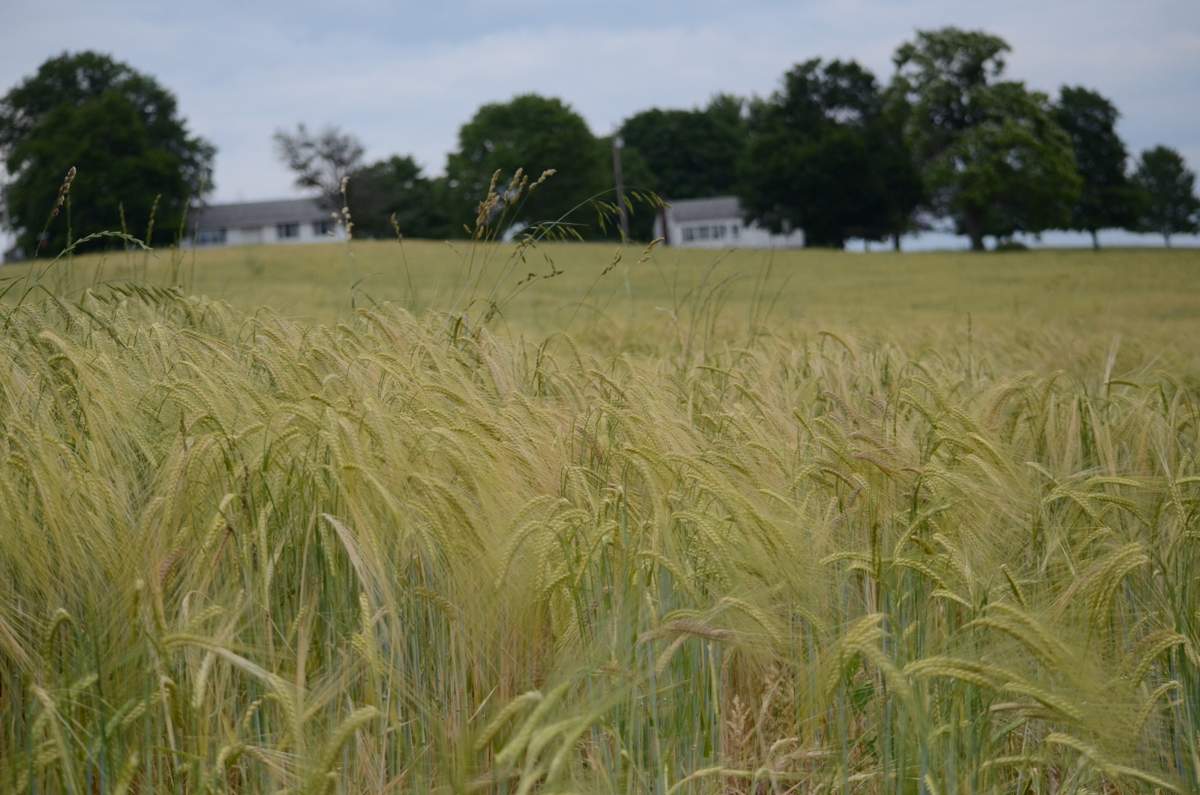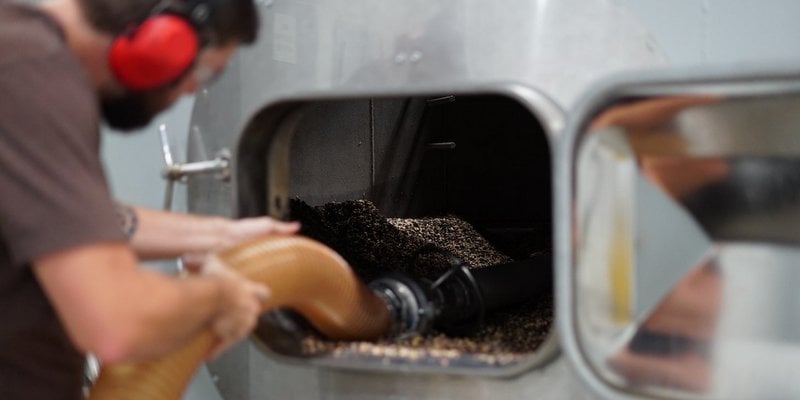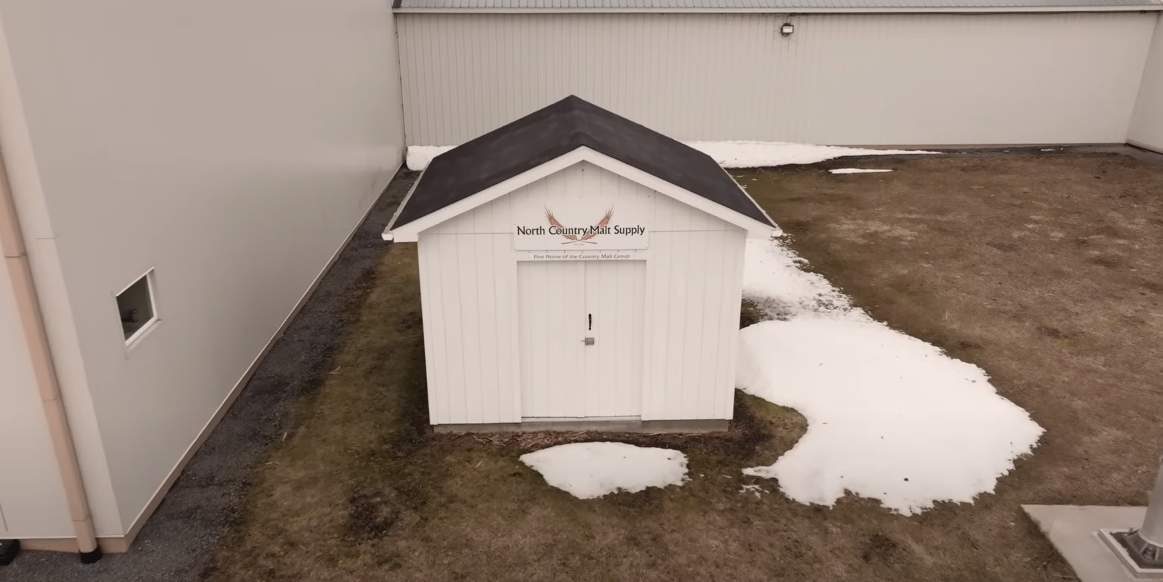
In June, the USDA National Agricultural Statistics Service (NASS) released its acreage and grain stocks reports, revealing a 14 percent increase in seeding barley in 2023 (3.36 million acres) over 2022. NASS also just released its Crop Production Report in July, and in that report barley production is forecast to be around 177 million bushels in 2023. That’s up 2 percent from 2022. Kudos to the American Malting Barley Association for posting those. From the report:
Based on conditions as of July 1, the average yield for the United States is forecast at 70.1 bushels per acre, down 1.6 bushels from last year. Area harvested for grain or seed, at 2.53 million acres, is unchanged from the acreage report released on June 30, 2023 but up 4 percent from 2022.
That probably means barley increases in America’s top three growing states — Idaho, Montana and North Dakota — which is good news as barley and malt shortages have hampered some brewers in the last couple of years. What’s also good news for craft brewers is the amount of interesting new malt products arriving to the market in 2023. For instance, Regenerative Organic Certified malt is now available for craft brewers. Regenerative Organic Certified is a new certification for food, fiber and personal care ingredients that aims to represent the highest standard for organic agriculture in the world — with stringent requirements for soil health, animal welfare and social fairness. Read all about it right here. Then read about…
Regenerative Organic Certified malt from Patagonia

In its effort to scale organic and Regenerative Organic Certified ingredients, Patagonia Provisions, which is the food and beverage business of outdoor apparel company Patagonia, recently introduced its new brewery partnership program. Eleven partner breweries throughout the country have released new beers, each brewed with Regenerative Organic Certified Kernza — a deeply-rooted perennial grain. You can see how deeply rooted in the photo above.
Kernza is the trademark name for the grain from an intermediate wheatgrass, developed by The Land Institute out of Kansas. We’ve profiled it many times. Kernza is a perennial form of wheat. Once planted, it comes back on its own year after year and provides a whole host of benefits for farmers, ranchers and the environment, including increasing the health of soil biology, reducing the need for tilling and replanting, promoting carbon sequestration and reducing carbon released into the air. Kernza’s 12-ft root system also reduces the effect of erosion and lowers the amount of water used to keep the fields alive.
Perennial crops like Kernza require minimal tilling, increase soil organic matter, improve soil health and water-holding capacity and help fight the climate crisis. Patagonia is confident that ongoing research will also confirm that Kernza draws down and stores more carbon in the soil than annual grains. When used in beer, it adds a deliciously rich but subtle, nutty flavor.
The Regenerative Organic Certified Kernza is sourced from A-Frame Farm — a 1,200-acre Regenerative Organic Certified farm in Madison, Minnesota. Patagonia plans to expand the program to include additional craft breweries in the coming months and looks to incorporate other Regenerative Organic Certified ingredients.
This inaugural cohort of breweries each produced an original easy-drinking Kernza lager, co-branded with Patagonia, brewed with regionally-sourced organic ingredients, and made available in their local area.

The initial list of brewery partners includes:
- Allagash Brewing Co. (Portland, ME)
- Arizona Wilderness Brewing (Gilbert, AZ)
- Aslan Brewing Co. (Bellingham, WA)
- Bang Brewery Co. (St. Paul, MN)
- Hopworks Urban Brewery (Portland, OR)
- Maui Brewing Co. (Kihei, HI)
- Odell Brewing Co. (Ft. Collins, CO)
- Rhinegeist Brewery (Cincinnati, OH)
- Russian River Brewing (Sonoma County, CA)
- Sierra Nevada Brewing Co. (Chico, CA)
- Topa Topa Brewing Co. (Ventura, CA)
Participating breweries will each contribute 1% of Patagonia beer sales (matched by Patagonia) to local nonprofits that support environmental initiatives and meet 1% for the Planet eligibility criteria.
“Patagonia is thrilled to partner with these value-aligned breweries, all driven by delicious flavors, high quality ingredients, and responsible business and brewing practices,” said Paul Lightfoot, Patagonia Provision’s general manager, in the press release. “Craft beer drinkers want great tasting beers made with clean ingredients that are better for the planet, and we look forward to bringing these beers to Patagonia customers and all beer lovers.”
Root Shoot Malting promotes three sustainable grains

Let’s stick with eco-focused ag products for brewing. Root Shoot Malting, the Colorado-based craft malthouse, recently announced that its sustainability efforts include experimenting with new types of grain to combat the challenges of farming while dealing with a changing climate.
“Our goal is to farm in a manner that protects both the land and the profession for future generations,” said Farmer and Founder of Root Shoot Malting Todd Olander in the press release. “To that end, we’re always experimenting with new grains and new techniques that will make both our land and our business resilient in the face of an ever-changing environment.”
Three specific varieties that Olander Farm (the folks behind Root Shoot) is planting this year include Thunder, Lightning and (yep) Kernza. Thunder and Lightning are two new winter barley grains developed by Oregon State University.
Barley, a cool-weather crop, is typically planted in the spring in Colorado. However, as Colorado’s springs have gradually become warmer and drier, barley crops suffer. Warm, dry weather stresses the plants, which in turn causes them to produce protein levels high enough to render them useless for brewing beer and spirits. Thunder and Lightning experimental seeds are planted in the fall with the hope that it can withstand the Colorado winters. OSU has developed these two varieties that are more resistant to the cold, and when dealing with warming springs, fall-planted barley has some real advantages: namely, they get all the winter moisture in addition to spring rains, and they spend less time in the heat of summer.
Led by the 5th generation family behind Colorado’s Olander Farms, Root Shoot has supplied craft grain to breweries and distilleries since its founding in 2016. The malthouse continues to ensure that farmland remains available to grow grains for the beers and spirits of tomorrow through its conservation easement with Colorado Open Lands.
Food21 launches Allegheny Mountain Malt, produced via Pennsylvania-grown winter barley

Food21 of Pennsylvania, as a result of its successful Farm to Tap project, has launched a regional malted barley branded as Allegheny Mountain Malt. The malt is produced in collaboration with CNC Malting Co. in Fenelton, Pennsylvania, and farmers in Westmoreland county. It will be distributed by Zilka and Co., located in Hunker, Pennsylvania.
“Market research that grew out of Food21’s Farm to Tap project showed that regional breweries are eager to include more local ingredients in their beers,” said Vince Mangini, Food21 Value Center Manager, in the press release. “At the same time, local farmers are pursuing more sustainable farming practices, and barley is a perfect cover crop.”
Using barely as a winter cover crop protects soil from wind and water erosion and helps hold moisture. After harvest, the field stubble continues to prevent soil erosion, and helps to suppress weeds and provide organic matter to sustain crop production. Additionally, leaving barley straw in the field returns nutrients to the soil, helps to build organic matter and allows farmers to save money on fertilizer costs.

“Another advantage in planting barley is that its season rotates well with soybeans,” added Fred Slezak, certified crop advisor and owner at Lone Maple Ag Services, and a grower for Allegheny Mountain Malt. “It not only promotes soil health in no-till farming, but it also retains the soil very well and has a monetary value.”
“We are getting ready to harvest 100 acres of barley at six different farms,” said Mangini in the press release. “Fingers crossed … we are expecting to yield 80 bushels per acre, so a total of 8,000 bushels. In partnership with CNC Malt, that should produce around 360,000 pounds of Allegheny Mountain Malt.”
Allegheny Mountain Malt is available in four unique flavor profiles — Latrobe Two Row, Pilsner, Vienna and Munich — or can be custom malted at a brewmaster’s request. To purchase malt or for more information, visit www.ammalt.com or contact Zilka and Company by phone at (724)858-8101; or email Brian Williams [email protected].
Big congrats: Riverbend Malt House is a Certified Living Wage employer

For craft breweries looking to support suppliers that treat their people right: Riverbend Malt House has earned Just Economics’ Living Wage Certified Employer status for paying all of its 16 employees a salary at or above the living wage rate established by the county. Additionally, Riverbend continues to pay 100 percent of employee health insurance premiums, commencing on the first day of employment.
Since 2007, Just Economics has worked to educate and advocate for a just and sustainable local economy that works for all in Western North Carolina. Its Living Wage Certification program was developed to help local businesses define “living wage” in the evolving economic context of Western North Carolina and to provide independent certification of living wage claims by local companies.
This is the sixth consecutive year Riverbend has earned their certificate.
“Riverbend is proud to continue its longstanding policy of paying certified living wages in 2023,” said CEO Scott Hickman in the press release. “We do it because it’s the right thing to do, and beyond that we enjoy the benefits of a higher quality, more motivated employee team with lower turnover.”





Leave a Reply
You must be logged in to post a comment.